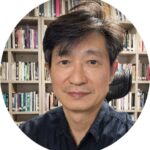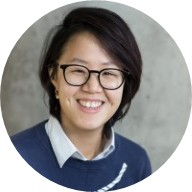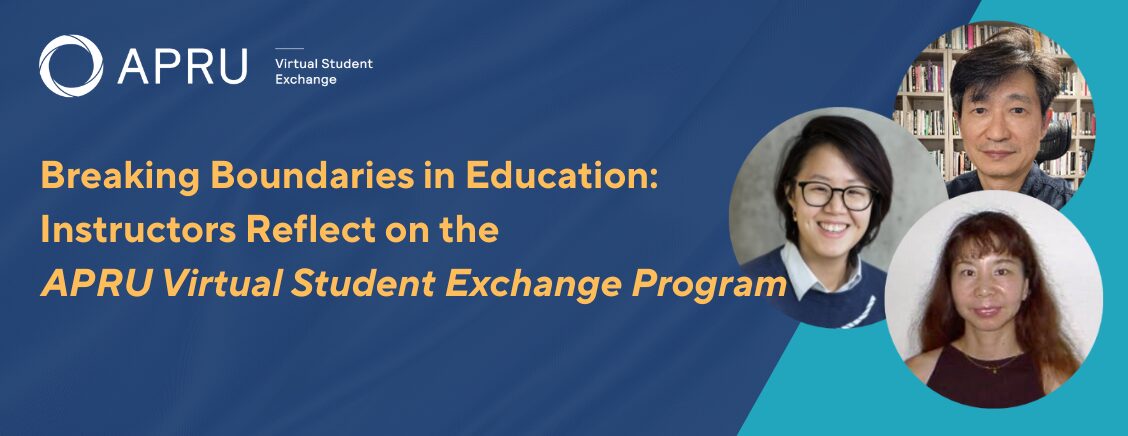Since its launch in 2020, the APRU Virtual Student Exchange (VSE) Program has redefined what a global classroom can be. Developed in response to the disruption of international mobility caused by the COVID-19 pandemic, over 4,200 students across 18 economies of the Asia-Pacific region have participated in the VSE Program, which involves over 1,100 academic and language courses from leading universities, without leaving home.
The VSE program is open to all 61 APRU member universities across Asia, the Americas, and Australasia. Students of the participating institutions can take courses across disciplines and benefit from an immersive international experience through collaborative assignments, live discussions, and global peer interaction. The VSE Program has expanded access to courses that would otherwise be geographically or financially out of reach, enabling inclusive, borderless learning. However, the Program’s success lies not only in the opportunities it provides to students; for many instructors, the VSE experience has also inspired meaningful pedagogical transformation.
For educators, the virtual teaching model challenges traditional assumptions about the classroom. Many VSE instructors express that, despite the virtual format, the level of student engagement has been remarkably high. Interactive tools, thoughtful course design, and the cultural diversity of the student body help facilitate rich academic discussions.
Creating a Global Classroom
At Yonsei University, Professor Hyunjun Min teaches Contemporary Korean Cinema and Society and has observed how the virtual platform has enabled deeper reflection and cross-cultural exchange. The diversity of student backgrounds—culturally, linguistically, and academically—adds layers of interpretation to each film discussed, encouraging students to draw parallels with their own societies and experiences.

“The learning atmosphere has been lively, safe, thoughtful, and surprisingly intimate for an online platform. I firmly believe that virtual learning has become an essential component of higher education. For students considering a VSE course: be open, be curious, and don’t underestimate the connections you can build—even across continents.” – Professor Hyunjun Min, Yonsei University
Enhancing Inclusivity via Virtual Teaching & Learning
Similarly, at Korea University, Dr. Hajin Lee’s Social Psychology incorporates digital tools like Slack to ensure accessibility and maintain engagement. While teaching online comes with challenges—such as asynchronous participation or students’ reluctance to appear on camera—Dr. Lee emphasizes the potential of these environments to foster inclusivity, especially for students with health concerns, mobility issues, or those who are balancing work and study.

“I strive to make my course dynamic and interactive by fostering a participatory learning environment where students feel comfortable asking questions and engaging in discussions without hesitation. Through the VSE Program, I’ve fostered a strong sense of community and built meaningful mentorship relationships with students, which remain to be one of the most rewarding aspects of my teaching journey.” – Dr. Hajin Lee, Korea University
Fostering Cross-cultural Exchange
From the perspective of Professor Mio Sekiguchi at Nagoya University, the value of the VSE Program is also cultural. Her language course brings together students from Asia, the Americas, and Europe who share a common interest in Japanese language and culture. For students who are unable to study abroad, the opportunity to interact with peers in Japan and learn Japanese through listening, speaking, discussions, and group presentations is a rare and empowering experience.

“The students’ desire to learn Japanese inspires the faculty. Since they are from various countries, everyone will have different experiences, opinions, and points of view to share. ‘Let’s improve your Japanese language skills together through these activities.’” – Professor Mio Sekiguchi, Nagoya University
Instructors across various disciplines and institutions emphasize the vital development of intercultural competencies, digital fluency, and global awareness as core outcomes of the VSE model. These skills are not merely enhancements to the traditional academic experience; they are indispensable in our interconnected world.
The VSE Program has also nurtured the growth of educators. As they teach across different time zones, manage diverse learning styles, and address various technological needs, instructors become more agile, adaptable, and intentional in their teaching. The journey inspires a profound rethinking of what “classroom presence” truly embodies and how vibrant learning communities can flourish—even through screens.
While virtual learning may not replicate every nuance of in-person education, the VSE Program demonstrates that global experiences can transcend geographical boundaries. As higher education evolves, the VSE Program stands out as an inspiring model for inclusive, innovative, and international learning.
To find out more, visit: https://vse.apru.org/

